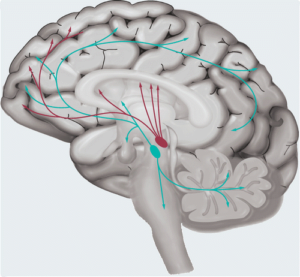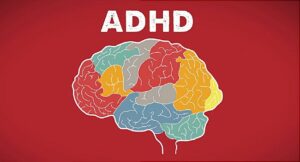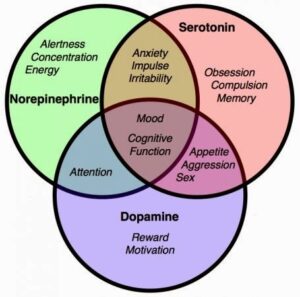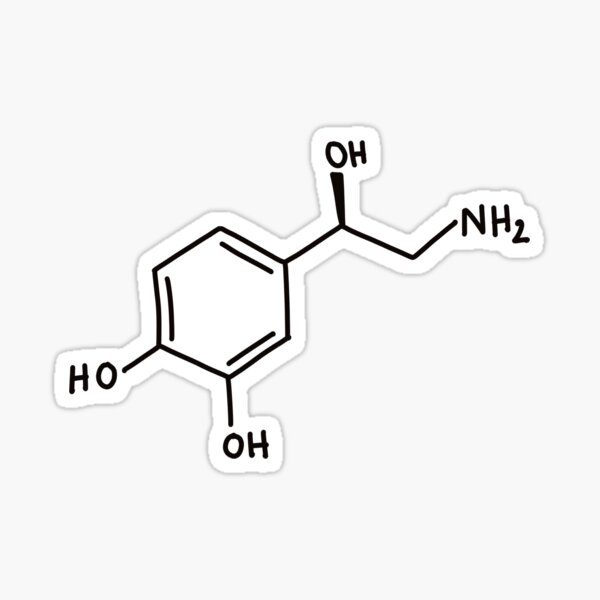If you are one of the millions of people who suffer from ADHD, then you know how difficult it can be to focus and stay on task. You may have tried a variety of medications and treatments, but have you ever wondered what role norepinephrine plays in ADHD? In this blog post, we will discuss the role of dopamine and noradrenaline in ADHD and how they work together to help control attention and impulsivity. We will also talk about the potential side effects of these medications and how you can find the right treatment plan for you.
Contents
What Is Norepinephrine?

Norepinephrine is a chemical that the body produces in response to stress. It is also known as adrenaline. When norepinephrine releases into the bloodstream, it increases heart rate and blood pressure. This happens because norepinephrine prepares the body for the fight-or-flight response. Norepinephrine also plays a role in memory and focus. When you are trying to remember something, norepinephrine helps to send signals from the hippocampus to the prefrontal cortex. This area of the brain is responsible for working memory and executive function.
What Is ADHD?
ADHD is a neurodevelopmental disorder that is characterized by problems with focus, hyperactivity, and impulsivity. It is a rough estimate that between three and five percent of children worldwide suffer from ADHD. The symptoms of ADHD can cause problems in school, at work, and in social situations. People with ADHD may also have difficulty controlling their emotions.
Role Of Norepinephrine On ADHD

So how does norepinephrine play a role in ADHD? It is thought that people with ADHD have lower than normal levels of norepinephrine. This can lead to problems with focus and attention. The low levels of norepinephrine may also cause impulsivity and hyperactivity. treatment for ADHD often includes medications that increase levels of norepinephrine in the brain. These medications are known as stimulants.
While stimulants are the most common type of medication used to treat ADHD, there are other options available. Some non-stimulant medications can also be effective in treating ADHD. These medications work by increasing dopamine levels in the brain. Dopamine is another chemical that helps to regulate attention and behavior.
Dopamine and Noradrenaline
Dopamine is another chemical that is involved in the symptoms of ADHD. It is a neurotransmitter that helps to control movement, emotion, and motivation. Dopamine also plays a role in the reward system in the brain. This means that it can help to increase focus and attention span when people with ADHD are rewarded for good behavior. Medications for ADHD work by increasing the level of dopamine in the brain. This helps to improve focus, attention span, and impulse control.
Noradrenaline is a chemical that is similar to norepinephrine. It also involves in the fight-or-flight response. Medications for ADHD work by increasing the level of noradrenaline in the brain. This helps to improve focus, attention span, and impulse control.
Effects Of Dopamine And Noradrenaline On Norepinephrine
Dopamine and noradrenaline are two neurotransmitters that have been shown to affect norepinephrine levels in the brain. Dopamine says to increase norepinephrine release, while noradrenaline is thought to decrease norepinephrine release. This means that the two neurotransmitters work together to help regulate attention and focus. Medications for ADHD work by increasing the level of dopamine and noradrenaline in the brain. This helps to improve focus, attention span, and impulse control. They can also help to reduce the side effects of norepinephrine.
How Neurotransmitters Work On ADHD Brains?

It is not fully understood how neurotransmitters work on the brains of people with ADHD. However, it is a belief that they play a role in regulating attention and focus. Medications for ADHD work by increasing the level of dopamine and noradrenaline in the brain. This helps to improve focus, attention span, and impulse control. They can also help to reduce the side effects of norepinephrine.
It is a popular belief that people with ADHD have lower levels of norepinephrine. This can lead to problems with focus and attention. The low levels of norepinephrine may also cause impulsivity and hyperactivity. Treatment for ADHD often includes medications that increase levels of norepinephrine in the brain.
Dopamine is a neurotransmitter that helps to control movement, emotion, and motivation. It also plays a role in the reward system in the brain. This means that it can help to increase focus and attention span when people with ADHD get rewards for good behavior. Medications for ADHD work by increasing the level of dopamine in the brain.
Noradrenaline is a chemical that is similar to norepinephrine. It also involves in the fight-or-flight response. Noradrenaline plays an important role in attention and focus. Medications for ADHD work by increasing the level of noradrenaline in the brain. This helps to improve a large variety of ADHD symptoms.
Side Effects Of Medications
Medications that increase norepinephrine and dopamine levels can have side effects. These side effects can include:
•Loss of appetite
•Nausea
•Headaches
•Irritability
If you are considering taking medications for ADHD, it is important to talk to your doctor about the potential side effects. They can help you decide if the benefits of the medication outweigh the risks. Finding the right treatment plan is important for managing the symptoms of ADHD.
Norepinephrine and dopamine are two chemicals that play a role in the symptoms of ADHD. Medications for ADHD work by increasing the level of these chemicals in the brain. This can help to improve focus, attention span, and impulse control. However, these medications can also have side effects. Talk to your doctor about the potential risks and benefits of taking medications for ADHD before starting any treatment plan.
Managing Side Effects
There are a few things that you can do to manage the side effects of norepinephrine and dopamine. If you are taking medications for ADHD, talk to your doctor about the potential side effects. They can help you decide if the benefits of the medication outweigh the risks. Finding the right treatment plan is important for managing the symptoms of ADHD.
You can also try some natural remedies to help improve focus and attention span. Some people find that omega-three supplements can help to improve symptoms of ADHD. Others find that meditation or yoga helps to calm the mind and improve focus. There is no one-size-fits-all solution for managing ADHD, but there are many options available. Talk to your healthcare provider to figure out the best fit for your condition.
Conclusion
Norepinephrine and dopamine are two important chemicals in the brain. They play role in the symptoms of ADHD. Medications for ADHD work by increasing the level of these chemicals in the brain. This can help to improve focus, attention span, and impulse control. However, these medications can also have side effects. Talk to your doctor about the potential risks and benefits of taking medications for ADHD before starting any treatment plan.
For more information, please contact MantraCare. ADHD is a neurodevelopmental disorder characterized by difficulty in paying attention, hyperactivity, and impulsivity. If you have any queries regarding Online ADHD Counseling experienced therapists at MantraCare can help: Book a trial ADHD therapy session


